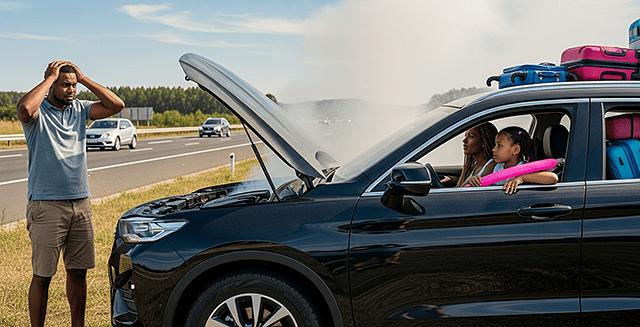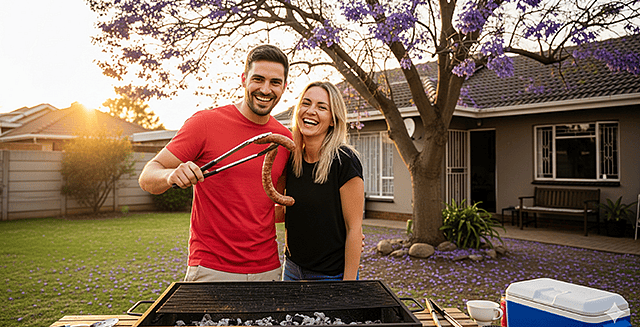Knowledge Hub
Homeowners Insurance: How it Helps Recovery After a Disaster
As a homeowner, you've probably insured your home and its contents and know what to do in case of covered events, like a burglary or a burst geyser. But what if floods or wildfires damage your home? Your Homeowners’ Insurance protects you against various events, helping you recover faster and with less stress and financial burden. However, being prepared for any event is still essential, including understanding your insurance policy and the type of events for which you are covered. At Dialdirect, we believe insurance can be your strongest ally in times of crisis, which is why we've put together this guide on how insurance for homeowners can help you recover after a disaster.
Does Homeowners’ Insurance cover natural disasters in South Africa?
The short answer is that your Home Insurance includes financial protection in the event of natural disasters. Therefore, it’s important to understand the types of natural disasters that are typically covered.
-
Fire: The Knysna fires of 2017 showed how devastating runaway fires can be, destroying more than 1,000 homes and displacing thousands of people. While the Western Cape is more prone to wildfires, they can occur almost anywhere.
-
Strong Winds or Hailstorms: Vehicles are usually the worst affected by strong winds and hail. However, a severe storm across parts of Gauteng in 2017 collapsed walls and damaged the roofs of dozens of homes.
-
Lightning Strikes: Annually, lightning strikes to homes and property cost homeowners enormously due to its destructive potential. That’s because lightning can cause fires, electrical damage and damage to the structural integrity of a home.
-
Explosions: Faulty installations, malfunctioning gas appliances, and gas leaks are common causes of home explosions and result in significant property damage.
-
Earthquakes: Although earthquakes are rare in South Africa, most Homeowners’ Insurance policies include earthquake coverage.
-
Floods: In 2022, large portions of KZN were affected by one of the worst floods in South Africa's recent history. Thousands of homes and critical infrastructure were damaged or destroyed, highlighting the catastrophic impact of floods.
-
Mudslides: Though commonly caused by heavy rainfall, mudslides and landslides can also be triggered by other ground movements. Homes in hilly or mountainous regions are particularly at risk for this natural disaster.
-
Land Subsidence: Although rare, sinkholes can cause abrupt and severe damage to property. However, most Homeowners’ Insurance policies also cover less severe forms of land subsidence.
For each of these disasters, it’s important to know the specifics of your policy, as coverage details can vary. Knowing that your insurance can provide financial support in these situations offers peace of mind in the face of South Africa's diverse natural challenges. It is equally important to understand that damage resulting from you having neglected to carry out routine maintenance could result in your insurance claim being rejected.
Will Homeowners’ Insurance cover me if my home is totally destroyed?
The coverage your insurance provides in the event of complete home destruction depends on the specifics of your policy, including limits and exclusions. Review your policy's terms, conditions, and exclusions for a clearer understanding of the coverage. Key aspects of a standard Homeowners’ Insurance policy to pay attention to are:
-
Dwelling Coverage: This cornerstone of Homeowners’ Insurance covers the costs of repairing or rebuilding your home if it is damaged or destroyed by a covered event. This includes natural disasters, but the cover is specific to the physical structure of your home, along with fixtures attached to the property.
-
Coverage Limits: Dwelling coverage is always capped at a certain limit; you should regularly review this. If the cover limit is less than what it would cost to rebuild your home, you will have to bear the shortfall yourself.
-
Policy Exclusions: Property Insurance typically covers natural disasters, but specific events — such as floods or earthquakes — may be excluded. Carefully consider the exclusions and whether you live in an area prone to these risks. You may need to add a separate cover or switch to comprehensive insurance to include events you aren't currently covered for.
-
Personal Property Cover: Natural disasters don't only damage the structure of your home but also the contents. The policy should include provision for repairing or replacing personal belongings affected by a covered event.
-
Additional Living Expenses (ALE): The severity of the covered event could result in your home being unsafe to live in. ALE coverage would help cover the costs of temporary accommodation, meals and other living expenses while your home is being repaired or rebuilt.
If you have any concerns or questions with regard to your specific coverage, it’s advisable to consult your insurance agent or broker. It’s also sensible to update your coverage following any improvements you make.
Underinsurance is an important issue to consider with Homeowners’ Insurance. If your coverage is not enough to cover the costs of rebuilding or repairing your home, you are likely to incur significant out-of-pocket expenses. Being underinsured adds financial strain, especially when you're already distressed. It could also mean additional out-of-pocket expenses and construction delays. This emphasises the importance of comprehensive Homeowners’ Insurance.
The critical role of Homeowners’ Insurance in the recovery process
When disaster strikes, knowing the steps to take can significantly impact the recovery process for the better. These include:
-
Understanding Your Insurance Coverage: Don't wait until you're affected by a disaster. Familiarise yourself with your policy to understand what is covered and review it regularly.
-
Focusing on Safety: In the event of a disaster, your priority should be the safety of you and your family. This includes evacuating your home if necessary.
-
Documenting the Damage: Once it is safe to do so, document the extent of the damage. This will be crucial for your insurance claim.
-
Contacting your Insurance Provider: Speak to your insurer as soon as possible. Don't worry if essential documents have been lost in the disaster. Your insurer understands situations like this and should have all your records on file.
-
Initiating the Claim Process: Work with the insurance adjustor or assessor assigned to your case to evaluate the damage and start your claim.
-
Accepting the Claims Offer: Once your claim has been processed, an offer will be made. Review it carefully before accepting.
-
Repairing or Rebuilding: Begin the process of repairing or rebuilding your home, ensuring that you comply with any requirements set out by your insurer.
Tips for a smooth recovery process after a disaster
To ensure a smooth recovery after a disaster, being prepared and proactive is key. Here are some essential tips:
-
Document Your Property: Don't wait until you're affected by a covered event. Document your property with photos or videos beforehand. This will serve as proof of your belongings and their condition for insurance purposes.
-
Maintain Detailed Records: Keep records and receipts of all your valuable items. These documents will be crucial when making an insurance claim.
-
Secure Important Documents: Store copies of important documents, like your insurance policy, in a safe, off-site location. This can be a digital cloud storage or a physical location away from your home.
-
Promptly Contact Your Insurance Company: If affected by a disaster, contact your insurance provider as soon as possible to report the damage.
-
Get Multiple Estimates: You want to ensure that you receive a fair assessment and cost for the restoration, so always get multiple estimates and quotes.
-
Review and Update Your Policy: Regularly review your insurance policy, especially after major changes like renovations, to ensure your coverage is adequate and up-to-date.
You will be dealing with considerable stress and uncertainty in the aftermath of a disaster, but following these tips could make the recovery process more manageable and efficient. Understanding your policy, documenting your property, maintaining detailed records, and staying proactive are all key to managing post-disaster challenges.
Get a Homeowners Insurance quote from Dialdirect
The peace of mind and financial stability provided by comprehensive Homeowners' Insurance in South Africa are invaluable in times of crisis. Ensure your home is protected against the unexpected: get aHomeowners’ Insurance quote from Dialdirect.

We Have Great
Insurance Products
Need car, home & Life Insurance? We offer a wide range of insurance products. Switch & get cash back on insurance premiums.






